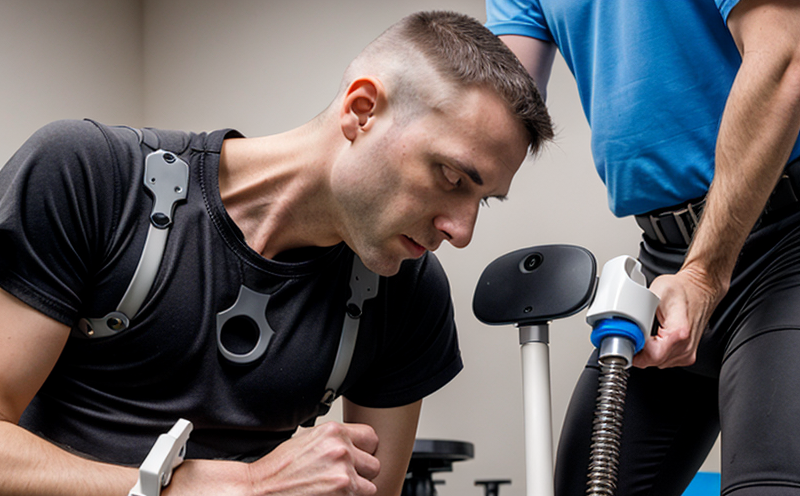Comprehensive Orthopedic and Prosthetic Device Test Panel
The Comprehensive Orthopedic and Prosthetic Device Test Panel is designed to ensure that orthopedic implants, prostheses, and associated components meet the highest standards of performance, safety, and reliability. This panel encompasses a wide array of tests critical for regulatory compliance, quality assurance, and product development.
Our laboratory specializes in providing a full suite of testing services tailored to the unique requirements of orthopedic and prosthetic devices. From biomechanical evaluations to biocompatibility assessments, we employ advanced methodologies that align with international standards. This ensures that our clients receive accurate, reliable test results that can be used for both regulatory submissions and internal quality control.
The tests included in this panel are essential for ensuring the safety and efficacy of orthopedic devices during clinical use. They help identify potential issues before products reach the market or undergo further refinement in development stages. By leveraging our expertise, clients can streamline their product development cycles while minimizing risks associated with non-compliance.
Our team of engineers and scientists has extensive experience working with various types of orthopedic implants such as hip and knee replacements, spinal devices, joint fixation systems, and more. We understand the complexities involved in designing these devices and are committed to providing thorough testing solutions that meet industry expectations.
The Comprehensive Orthopedic and Prosthetic Device Test Panel includes multiple sub-tests aimed at evaluating different aspects of device performance:
- Biomechanical Testing: Evaluates how a device behaves under load conditions similar to those encountered in the human body.
- Material Analysis: Analyzes the composition and properties of materials used in constructing devices to ensure they are safe and effective.
- Surface Finish Inspection: Checks for any irregularities on surfaces that could affect friction or wear rates during use.
- In vitro Biocompatibility Studies: Assesses whether biological tissues react favorably when exposed to the device material over time.
- Electrical Insulation Testing: Ensures proper electrical insulation between conductive parts within devices connected directly to patients' bodies.
| Test Name | Aim | Applied Standard |
|---|---|---|
| Biomechanical Testing | Evaluate device performance under load. | ISO 10993-6 |
| Material Analysis | Analyze material composition and properties. | ASTM F756 |
| Surface Finish Inspection | Evaluate surface characteristics for friction and wear resistance. | ISO 13982-1 |
| In vitro Biocompatibility Studies | Evaluate biological reaction to device material. | ISO 10993-10 |
| Electrical Insulation Testing | Ensure safe electrical insulation within devices. | IEC 60601-2-4 |
Why It Matters
The Comprehensive Orthopedic and Prosthetic Device Test Panel plays a crucial role in ensuring the safety, effectiveness, and reliability of orthopedic devices. Regulatory bodies worldwide mandate rigorous testing procedures to demonstrate compliance with relevant standards.
By participating in this panel, manufacturers can ensure their products meet strict quality control measures before they enter clinical trials or reach consumers. This not only protects end-users from potential harm but also enhances trust among healthcare providers and insurance companies.
In addition to regulatory compliance, comprehensive testing allows for continuous improvement within the design process. Engineers can identify areas where modifications might enhance performance or reduce risk factors associated with specific materials or manufacturing techniques used in creating devices.
Furthermore, successful completion of these tests increases the likelihood that a product will gain approval from governing bodies such as the U.S. Food and Drug Administration (FDA), European Union's Medical Devices Regulation (EU MDR), or other international authorities responsible for overseeing medical technology industries.
Applied Standards
| Test Name | Aim | Applied Standard |
|---|---|---|
| Biomechanical Testing | Evaluate device performance under load. | ISO 10993-6 |
| Material Analysis | Analyze material composition and properties. | ASTM F756 |
| Surface Finish Inspection | Evaluate surface characteristics for friction and wear resistance. | ISO 13982-1 |
| In vitro Biocompatibility Studies | Evaluate biological reaction to device material. | ISO 10993-10 |
| Electrical Insulation Testing | Ensure safe electrical insulation within devices. | IEC 60601-2-4 |
Why Choose This Test
- Comprehensive coverage of all critical aspects affecting device safety and efficacy.
- Expertise in handling complex materials and advanced manufacturing processes.
- State-of-the-art facilities equipped to perform cutting-edge tests not available elsewhere.
- Fast turnaround times allowing quicker access to results for decision-making purposes.
- Compliance with international standards ensuring global acceptance of your products.





